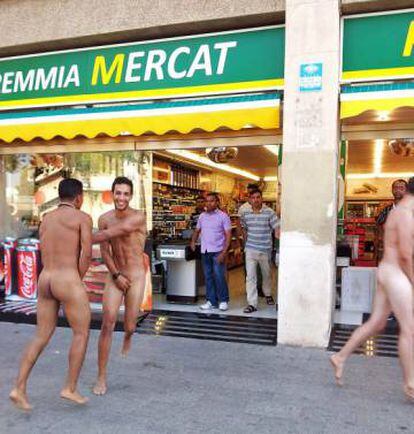Spain: Vacation rentals offering more beds than hotels for the first time
New report tracks rise of short-term tourist lodging in 22 major cities, and finds exponential growth

Vacation rentals have taken over the tourism market in Spain. In 2016, for the first time, there were more available beds in so-called “tourist apartments” than in hotels across Spain’s main cities, according to a study by Exceltur, the industry business association.

This analysis shows that the number of bed space available through short-term home rentals has nearly doubled from 2015, to reach 362,493 beds in Spain’s 22 biggest cities. This supply is 9.76% higher than what hotels had to offer.
The rise of short-term vacation rentals available through online operators has changed Spain’s tourism landscape. Between 2012 and 2016, supply skyrocketed by 1,633% in 22 cities that together represent 84.5% of all city tourism in the country.
We are starting to hear about ‘tourist-phobia.’ It is a cause for concern to the hotel industry because it affects us
Ramón Aragonés, CEO NH Hotel Group
“In just four years, vacation rental accommodation has exceeded the number of hotel beds created during entire decades of tourism-industry development,” noted José Luis Zoreda, executive vice-president of Exceltur, on Wednesday.
This supply inflation has not yet affected the hotel industry, which is experiencing a boom in foreign tourist arrivals. In fact, overnight stays at licensed lodgings grew 20% between 2012 and 2016.
But Exceltur warns that it will be difficult to keep this up once competing tourist destinations are no longer unstable and start attracting visitors once again.
“Once they recover, the Spanish sector will feel the effect of this new trend a lot more intensely,” said Zoreda.

This is the first time that a tourism industry report has reflected this new situation. The data compiled in UrbanTUR 2016, which was presented on Wednesday in Madrid, reflects the supply on offer in the main online platforms. This means that some ads may be repeated across websites, and that some available housing units may have been left out of the equation because they were not listed at the time that the report was drafted.
Airbnb, the most popular of the short-term home rental websites, has been growing at a pace of nearly 100% in recent years, and now represents 54.2% of all available vacation rentals in Spain.
Rise in demand
Demand in the 22 cities grew 33.8% more than in 2008, but the industry complains that occupancy rates and prices remain at pre-crisis levels.
“We haven’t improved on these two key aspects, and the problem is that we have greater tax pressure,” said the CEO of Meliá Hotels, Gabriel Escarrer.
The rise in tourism has reached a saturation point in major cities such as Barcelona and Madrid.
“We are starting to hear about ‘tourist-phobia.’ It is a cause for concern to the hotel industry because it affects us, although it makes no sense for us to be made responsible for the crowds seen in recent years,” said Ramón Aragonés, CEO of the NH Hotel Group.
The 22 cities analyzed in UrbanTUR 2016 were Barcelona, Madrid, Valencia, San Sebastián, Málaga, Seville, Palma, Bilbao, Santiago de Compostela, Gijón, Las Palmas de Gran Canaria, Valladolid, Zaragoza, Córdoba, Santander, Granada, Salamanca, Alicante, Murcia, La Coruña, Burgos and León.
English version by Susana Urra.
Barcelona, Madrid and Valencia, the most competitive
Barcelona, Madrid and Valencia are the most competitive cities in Spain in terms of tourism, according to the study by Exceltur, the industry business association. Out of the six indicators reviewed by the report, Barcelona takes top position in four. Madrid wins out in two fields: its attractive business products and its accessibility and mobility. The study also looked at leisure and entertainment options, urban settings, local life, governance and strategic management.
Málaga and San Sebastián climbed up to third and fourth place overall. “These cities have worked and invested in tourism, and that is noticeable,” said Óscar Perelli, director of the studies department at Exceltur.
The report also deplores that tourism has become less of a political priority for local governments, but praises improvements in digital marketing. Urbantur 2016 also notes a rise in private investment in tourism.












































